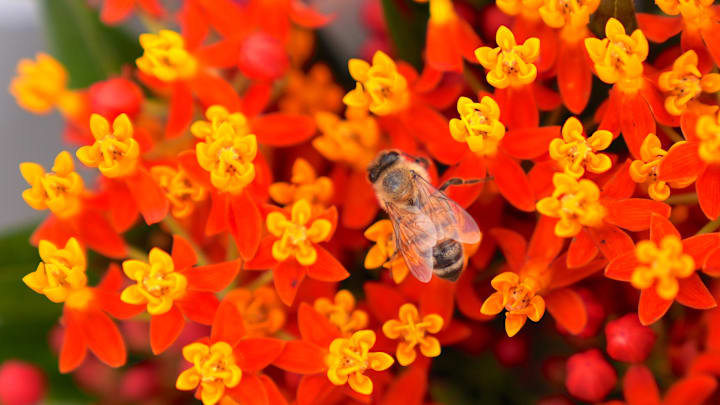The Significance of Pollinators in Agriculture and Ecosystems

Pollinators, including bees, butterflies, birds, bats, and other animals, play a critical role in agriculture and ecosystems. They are essential for the reproduction of many flowering plants, contributing to the production of fruits, vegetables, nuts, and seeds. Pollinators also support biodiversity and the health of ecosystems by facilitating plant reproduction and maintaining genetic diversity. Understanding the significance of pollinators and the threats they face is crucial for ensuring food security, ecosystem stability, and human well-being.
Pollination is the transfer of pollen from the male parts of a flower to the female parts, enabling fertilization and the production of seeds and fruits. While some plants are wind or water-pollinated, the majority of flowering plants rely on animals for pollination. Bees are the most well-known and effective pollinators, but many other insects, birds, and mammals also contribute to this vital process. The relationship between pollinators and plants is often mutually beneficial, with pollinators receiving food in the form of nectar or pollen and plants achieving successful reproduction.
In agriculture, pollinators are essential for the production of a wide variety of crops. Over 75% of the world's leading food crops depend on animal pollination to some extent. This includes many fruits and vegetables, such as apples, strawberries, tomatoes, and cucumbers, as well as nuts, seeds, and oil-producing plants. Pollinators enhance crop yields, improve the quality of produce, and contribute to food diversity and nutrition. The economic value of pollination services is estimated to be in the billions of dollars annually, underscoring the importance of pollinators for global food security.
Beyond agriculture, pollinators play a crucial role in maintaining ecosystem health and biodiversity. Many wild plants rely on animal pollination for reproduction, contributing to the diversity and stability of ecosystems. Pollinators help sustain plant populations, which in turn support a wide range of other organisms, including herbivores, predators, and decomposers. The genetic diversity maintained by pollinators also enhances the resilience of plant populations to environmental changes and diseases. Healthy pollinator populations are therefore essential for the functioning and stability of natural ecosystems.
Despite their importance, pollinators are facing significant threats from human activities and environmental pressures. Habitat loss, pesticide use, climate change, disease, and invasive species are contributing to declines in pollinator populations worldwide. The conversion of natural habitats to agriculture, urban development, and infrastructure projects reduces the availability of food and nesting sites for pollinators. Pesticides, particularly neonicotinoids, can harm pollinators directly or indirectly by contaminating their food sources. Climate change affects the distribution and behavior of polleconomic consequences, including reduced biodiversity, increased carbon emissions, disrupted water cycles, and diminished ecosystem services.
Efforts to conserve and sustainably manage forests are essential for mitigating these threats and ensuring their continued provision of benefits. Protecting existing forests through the establishment of protected areas, community conservation initiatives, and legal frameworks is a critical strategy. Restoring degraded forests and reforesting cleared areas can enhance carbon sequestration, improve biodiversity, and strengthen ecosystem resilience. Sustainable forest management practices, such as selective logging, agroforestry, and reduced-impact logging, can balance the use of forest resources with conservation goals.
Engaging local communities and stakeholders in forest conservation is vital for the success of these efforts. Recognizing the rights, knowledge, and needs of indigenous and local communities ensures that conservation initiatives are socially inclusive and culturally appropriate. Community-based forest management can empower local people to take an active role in protecting and sustainably using forest resources. Education and awareness campaigns can foster a greater appreciation of forests and encourage sustainable behaviors.
International cooperation and policies play a crucial role in addressing the global challenges of deforestation and forest degradation. Initiatives such as the United Nations' Reducing Emissions from Deforestation and Forest Degradation (REDD+) program provide financial incentives for developing countries to protect and sustainably manage their forests. The Convention on Biological Diversity and the Paris Agreement also highlight the importance of forests in achieving global biodiversity and climate goals.
In conclusion, forests are essential ecosystems that play a critical role in climate regulation, biodiversity conservation, and human well-being. Their ability to sequester carbon, regulate local and regional climates, and support a vast array of species underscores their ecological importance. However, forests face significant threats from human activities and environmental pressures. Conserving and sustainably managing forests is crucial for ensuring their continued provision of ecosystem services and benefits. By recognizing the value of forests and taking concerted action to protect them, we can preserve these vital ecosystems for the benefit of present and future generations.